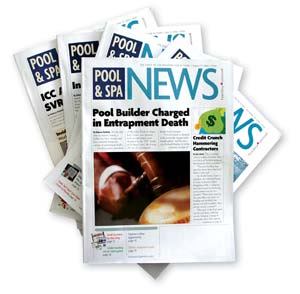Misunderstandings about a new California law led some to believe — incorrectly — that salt chlorine generators have been banned there.
The law addresses a specific type of residential water softener that releases salty water into sewage systems. Currently, the state is looking to increase the amount of nonpotable water it recycles for use in areas such as agriculture and landscaping. High salt levels complicate that process.
The new law allows local agencies to place restrictions — or outright bans — on such products after taking public comments.
Among the kinds of softeners not covered are activated carbon, reverse osmosis and exchange-tank softeners.
Regions affected by the legislation stretch from Southern California north past Sacramento.
After the law passed, EcoSmarte , a manufacturer of nonsalt alternative purification systems for homes and pools, broadcast-faxed a note to pool and spa professionals across the nation stating that the law banned salt chlorine generators in the state.
“R.I.P. California Salt Generators,” the note read. “Governor Arnold Schwarzenegger terminated the use of salt generators in California on October 12, 2009.” It went on to say that similar legislation had or will pass in other states, including New Jersey and Florida.
The law only mentions “residential self-regenerating water softeners,” said John Norwood, president/CEO of California industry lobbyist SPEC . “It does not include salt chlorine generators. I checked with the sponsor of the bill and the lobbyist who worked on it and got the same answer.”
Industry advocates in New Jersey and Florida say no salt chlorine-generator bans are on their states’ law books either.
But EcoSmarte CEO Larry Couture insisted that the California law will apply to chlorine generators, though he did not state where the language says that. “It specifically states that in the bill,” he alleged shortly after sending the fax.
Regardless, Norwood said, AB 1366 gave him pause. “When I saw the bill early this year and we started following it, the salinity-in-water issue made me think that the bill could have been expanded to try to deal with saltwater chlorinators,” he said. “The salinity issue is a major one, and it’s something that we’re going to have to monitor.”
The California industry has kept its eyes open for this issue since 2005, when Santa Clarita County banned salt chlorine generators.




